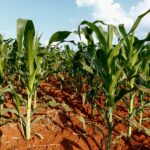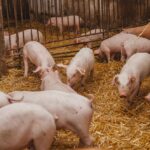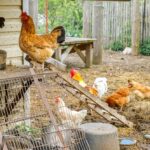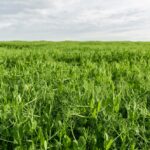- Role and Responsibilities: Agricultural economists analyze economic data and trends to provide insights and guidance to farmers, policymakers, and other stakeholders in the agricultural industry. They assess the economic impact of agricultural policies, forecast market trends, and make recommendations to improve agricultural productivity and sustainability.
- Education and Skills: Most agricultural economist positions require a minimum of a bachelor’s degree in agricultural economics, economics, or a related field. Strong analytical and problem-solving skills, as well as a solid understanding of agricultural systems and markets, are essential for this role. Proficiency in statistical analysis and economic modeling is also beneficial.
- Research and Analysis: Agricultural economists conduct research and analyze data to understand the economic factors influencing agricultural production, supply chains, and markets. They use various quantitative and qualitative methods to evaluate the impact of policies, technologies, and environmental factors on agricultural outcomes.
- Policy Development: Agricultural economists play a vital role in shaping agricultural policies and regulations. They assess the potential economic consequences of policy changes, such as subsidies, trade agreements, or environmental regulations, and provide recommendations to policymakers on how to achieve desired outcomes.
- Market Analysis: Agricultural economists monitor and analyze market trends, including supply and demand dynamics, pricing, and market competition. This information helps farmers and agribusinesses make informed decisions about production, pricing, and market entry strategies.
- Sustainability and Resource Management: Agricultural economists contribute to sustainable agricultural practices by evaluating the economic viability and environmental impact of different production methods. They assess the efficiency of resource use, such as land, water, and energy, and propose strategies for optimizing productivity while minimizing negative externalities.
- Risk Management: Agricultural economists assist farmers and agribusinesses in managing financial risks associated with agricultural production. They analyze market volatility, weather patterns, and other factors to develop risk management strategies, including insurance programs, futures contracts, and diversification of income sources.
- Economic Development: Agricultural economists contribute to rural and regional economic development by identifying opportunities for growth and diversification in the agricultural sector. They assess the economic potential of different agricultural enterprises, such as value-added processing, agritourism, or organic farming, and provide guidance on investment decisions.
- Communication and Collaboration: Agricultural economists often work in multidisciplinary teams, collaborating with agronomists, environmental scientists, policymakers, and industry stakeholders. Effective communication skills are crucial for presenting research findings, negotiating agreements, and building partnerships to address complex agricultural challenges.
- Career Opportunities: Agricultural economists can find employment in various sectors, including government agencies, research institutions, international organizations, consulting firms, and agribusiness companies. They can pursue roles as researchers, policy analysts, consultants, professors, or industry advisors, contributing to the advancement of agricultural practices and policies.
Remember, these points provide a general overview of the agricultural economist role, and specific job responsibilities may vary depending on the organization and the focus of the position.
Join 'Farmers Mag' WhatsApp Channel
Get the latest Farming news and tips delivered straight to your WhatsApp
CLICK HERE TO JOIN






